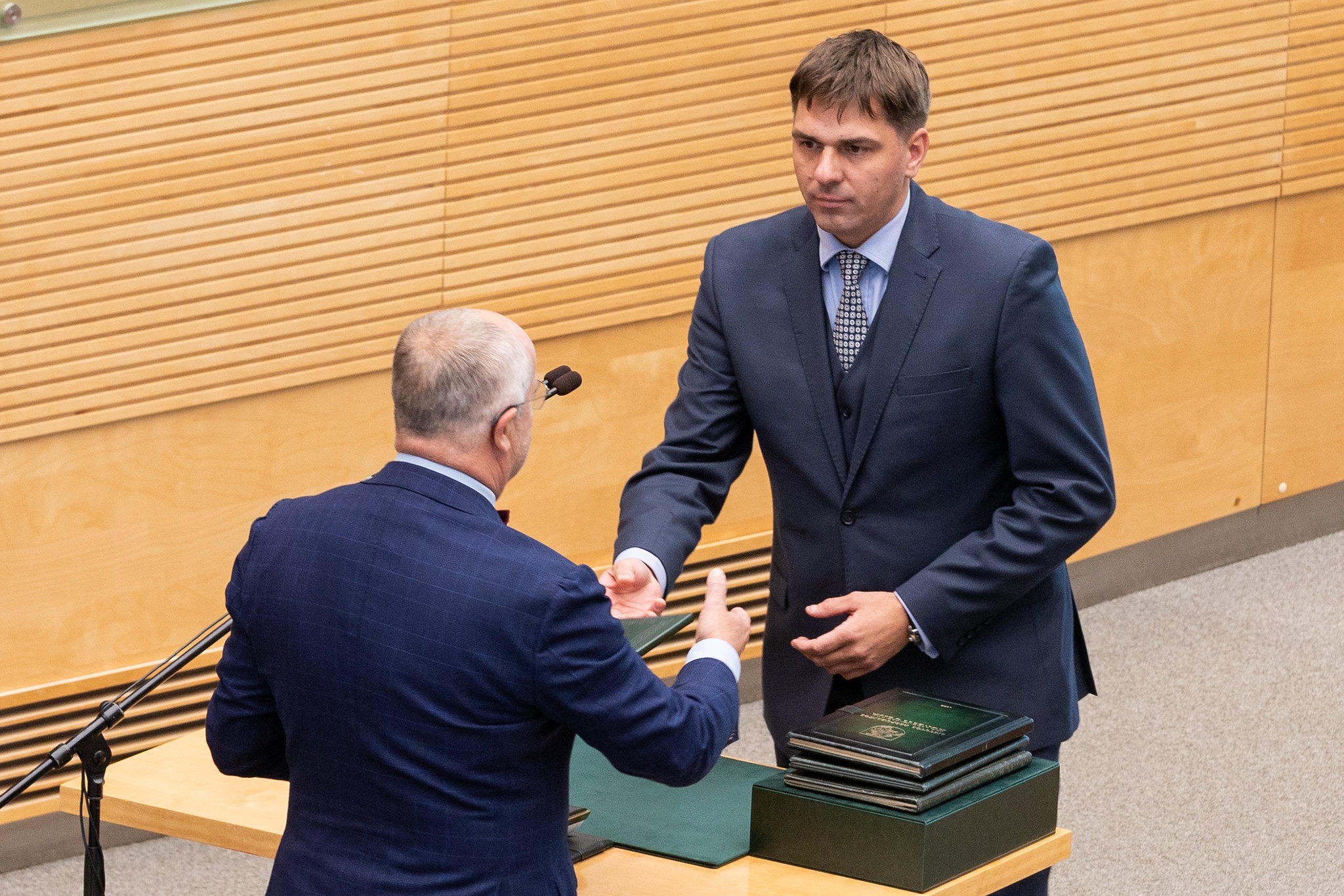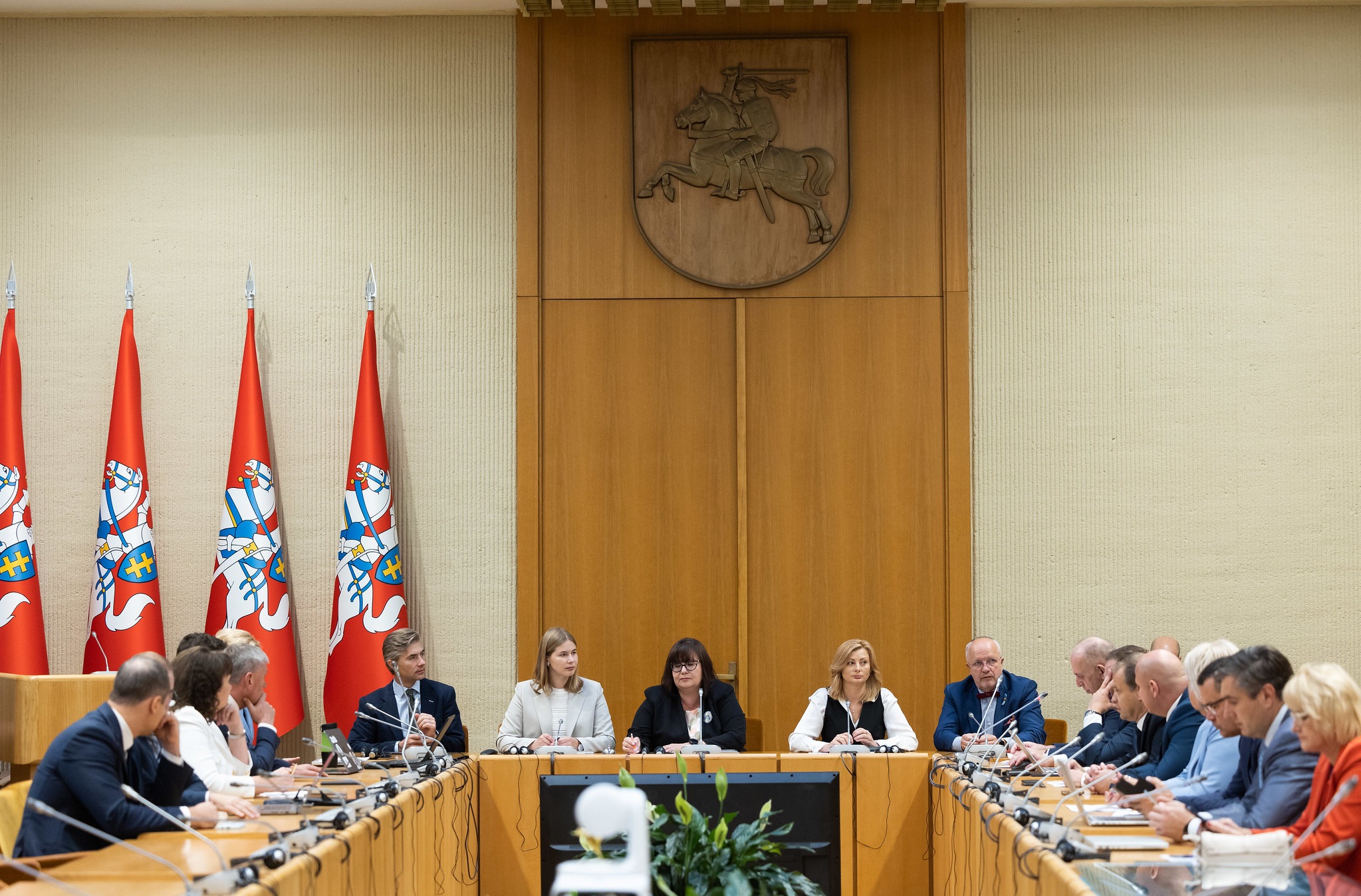Report
Estonia Weekly: Satirical “Olivier Salad Ban” Rumour Fuels Russophobia
Pro-Kremlin online voices in Estonia amplified both fabricated claims about cultural repression and criticism of long queues at the Narva border, framing these measures as evidence of “Russophobia.”
Weekly Reports
Estonia Weekly: Pro-Kremlin Narratives Amplify Treason Verdict and Anti-Ukraine Protests
Pro-Kremlin voices online portrayed the conviction of a Russian spy as political persecution and used it to question Estonia’s justice system. Meanwhile, KOOS activists staged an anti-exhibition protest in Tallinn, spreading it across Russian-language social media to amplify pro-Kremlin narratives.
Read moreLithuania Weekly: Kremlin-Aligned Media Exploit Adomavičius Resignation
Kremlin-aligned outlets seized on the backlash against newly appointed Culture Minister Ignotas Adomavičius, framing his rise as a “victory against the cultural elite.” While thousands protested and a petition opposing his appointment gained rapid traction, pro-Kremlin narratives mocked critics and praised Adomavičius as a defender of “traditional values.” Public figure Andrius Tapinas, who highlighted evidence questioning Adomavičius’s suitability, was singled out for personal attacks in Russian-language media.
Read moreLatvia Weekly: Disinformation Fuels Opposition to the Istanbul Convention
Ainars Šlesers of party Latvia First propagates false narratives claiming the Istanbul Convention promotes a “117 gender policy” and threatens traditional families, when the treaty actually focuses solely on preventing violence against women and domestic violence. He employs aggressive rhetoric against political opponents, repeatedly comparing Progressive party members to “Lenin,” sharing digitally altered images of them, and using terms like “gangsters” and accusations of “aggression” and “brainwashing” to delegitimize those who support the Convention.
Read moreEstonia Weekly: Narva Concert Ban Triggers Kremlin Narrative Push
Pro-Kremlin commentators labeled Estonia’s planned ban on foreign-language–dubbed films and the cancellation of Russian singer Kamazz’s concert as acts of “Russophobia” and cultural repression.
Read moreLithuania Weekly: Kremlin Media Amplifies Culture Minister Controversy
Kremlin-aligned outlets seized on the backlash against newly appointed Culture Minister Ignotas Adomavičius, framing his rise as a “victory against the cultural elite.” While thousands protested and a petition opposing his appointment gained rapid traction, pro-Kremlin narratives mocked critics and praised Adomavičius as a defender of “traditional values.” Public figure Andrius Tapinas, who highlighted evidence questioning Adomavičius’s suitability, was singled out for personal attacks in Russian-language media.
Read moreLatvia Weekly: Istanbul Convention Withdrawal Debate Revives Old Conspiracies
Despite Latvia’s ratification of the Istanbul Convention in 2023 and its proven benefits for violence victims, conservative politicians in preparation for parliamentary elections next year have launched a withdrawal campaign fueled by baseless disinformation claims that the treaty promotes “117 genders,” “pedophilia,” and moral decline. This deliberately misrepresents a violence prevention treaty as a conspiracy against traditional values echoing narratives disseminated by Russia.
Read moreEstonia Weekly: Narva Museum Director Sentenced in Absentia by Moscow Court
Pro-Kremlin commentators mocked Estonia’s UN appeal as “Russophobic hysteria,” while parts of Russian-speaking social media backed Moscow’s prison sentence against the Narva Museum director.
Read moreLithuania Weekly: Kremlin-Aligned Media Exploits Cabinet Formation
Over the past week, Kremlin-linked outlets in Lithuania have fixated on the formation of the new cabinet, using conspiratorial narratives to question ministerial candidates and intensify attacks on President Gitanas Nausėda. Energy sector appointments, particularly involving Ignitis, were framed as corrupt deals benefiting political elites. These narratives, coupled with sweeping accusations of worsening living conditions and government deceit, aimed to erode public trust and fuel disillusionment with democratic institutions.
Read moreLatvia Weekly: Kremlin Channels Spin Zapad 2025 as Diplomacy Success
Monitored Telegram channels mocked Baltic defense preparations and concerns while positioning Russia as diplomatically transparent. The channels claimed Russia’s Zapad 2025 military exercises were inclusive, because it was attended by observers from the US, Turkey, and other nations. The Baltic states’ refusal to participate was framed as hostile action.
Read moreShowing 28 to 36 of 334 results
Don’t miss a story.
We publish stories that change laws, lives, minds and the world. Subscribe to our newsletter to get our investigations delivered to your inbox.








